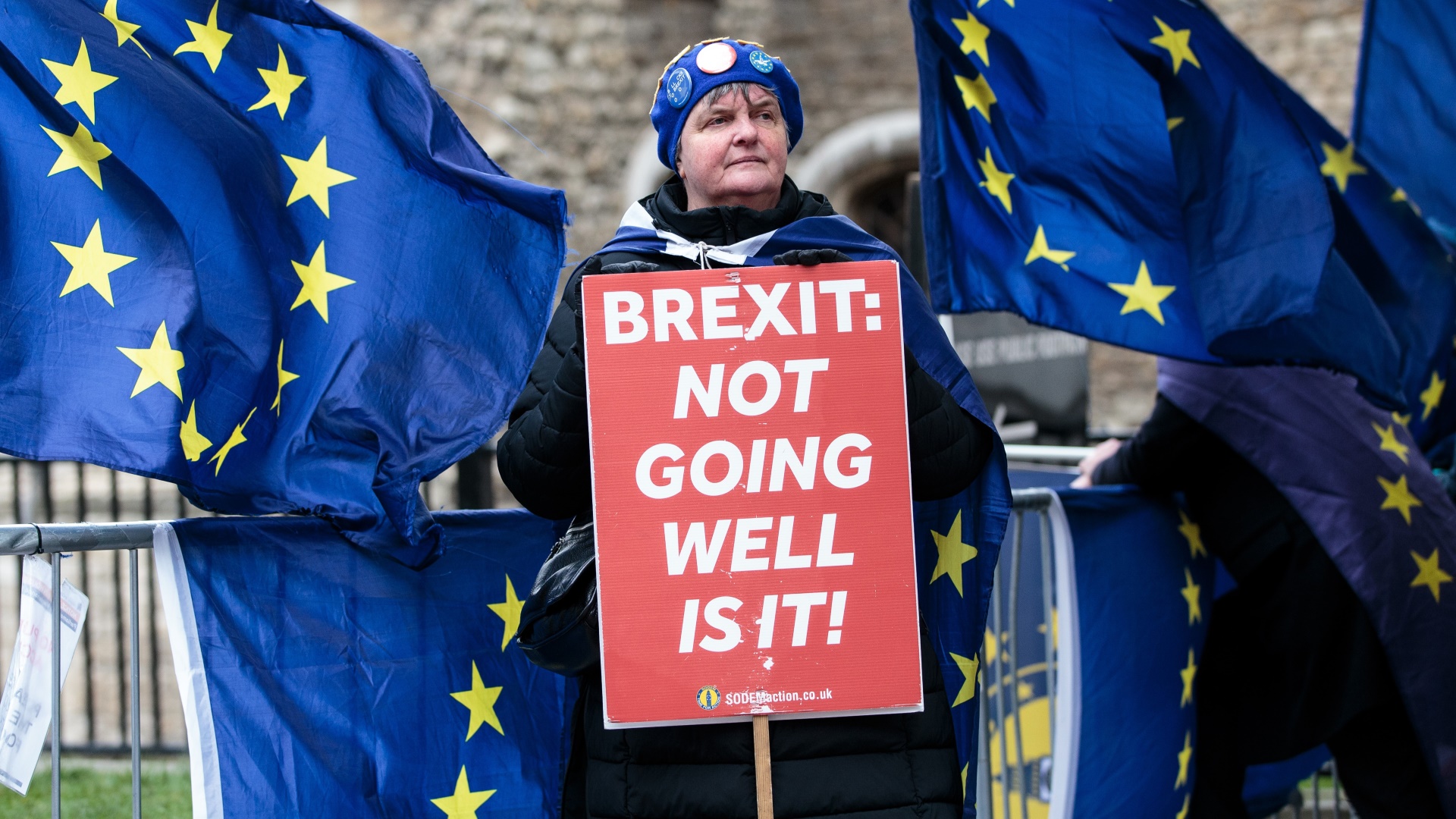This could be the year the Brexit game changes. Or it could be a year when nothing changes. Or, most likely, it could be another year of minor changes – in which, like 2023, we get a bit more smiley with the EU even as our decision to leave continues to wreak havoc on Britain, all while our leaders steadfastly refuse to name the elephant in the room.
One thing you can be certain of is that we will hear many claims that the Brexit deal Britain signed with the EU is up for renegotiation in 2025. Alas, this is rubbish – but all sides of the political debate will claim it is true, because they all want it to be true.
Rejoiners think this is the ideal opportunity to start the long journey back to membership. Labour wants to tell everyone that they and only they can get a much better deal with the EU. The few sensible Tories want to claim that they and only they can get a much better deal with the EU. The Brexiteers will scream blue murder and claim that the referendum result is about to be betrayed.
None of that can happen, as the UK’s Trade and Cooperation Agreement with the EU – the TCA – is going to be reviewed in 2025, not renegotiated. Only a minor amount of administrative adjustment is allowed.
And since the Chuckle Brothers – Lord “Frostie” Frost and Boris Johnson – managed to negotiate a deal that gave EU goods unlimited access to the UK market while putting up barriers to UK services sold in the EU, there’s not much cause for Brussels to want much change.
If there is a general election this year, the best Brexit result would be a large Labour victory and a large number of Lib Dem MPs. That, along with the SNP’s pro-EU stance, would change the political climate. The Tories would be left to civil war, and a sensible government could have serious dealings with the EU.
Rejoining Erasmus would be an obvious winner – the EU is keen – and rejoining the EU’s veterinary and food standards would be complicated but doable. But that is about as good as it gets.
Unfortunately, one thing we know for sure is going to happen is that checks, red tape and tests on food and agricultural imports into the UK from the EU will begin in January. The consequences will be huge. UK farmers will be happy, because without checks there is a real threat of importing diseases such as foot and mouth. But for the rest of us, it will be terrible.
When the EU introduced checks on UK food products immediately after Brexit, a huge swathe of small British food exporters just stopped bothering to export – it was now too risky, expensive and time-consuming. The same is likely to happen this time but with thousands of EU-based food producers giving up on the UK.
The cost of the new system – £330m per year by the government’s own admission – will push up food inflation just when it was coming down. The most alarming problem is that much of the logistics industry doesn’t think the UK can cope with the delays and costs, and that the food chain might even collapse. At any rate, the shelves are likely to become more bare.
All of that pales into insignificance when you consider that this government is trying to get around the European Convention on Human Rights and other bits of important international law, because they want to send some asylum seekers to Rwanda. This ignores a fundamental problem: human rights law, and the European Convention on Human Rights (ECHR) in particular, form a central part of both the Good Friday Agreement and the government’s own deal with the EU.
Both will be under threat in 2024 if the government goes ahead with making Britain an international legal pariah, just because it can’t back down from a policy that no one actually thinks can work anyway.
Washington will come down hard on anyone or anything that messes with the GFA – Joe Biden has often stressed his Irish heritage. In addition, Dublin will have the entire EU on its side.
The EU is deadly serious about human rights and does not do deals with countries that ignore them, or that leave the ECHR. It could start by ending all data, crime fighting and legal cooperation, overnight. But it could go further if it wanted, or if it thought the UK was going too far, and unilaterally suspend or terminate the TCA.
That is not to say the UK-EU deal would die the day the UK withdrew from the ECHR, but it would have the sword of Damocles hanging over it. Destroying or even suspending the deal would lead to immediate border chaos, tariffs on UK exports, and an economic implosion. The damage would be sudden, deep and long-lasting, if and until the Westminster government did a U-turn.
The nearest comparison I can think of is the Suez crisis: a run on the pound, the threat of economic disaster, the loss of US support and a humiliating climbdown by an out-of-touch government made to realise its real place in the world with shocking clarity and speed. The idea that anyone is even seriously thinking about this option is truly worrying.
One other option for the government is to try to control the number of people entering the UK in 2024, not by obsessing about the “small boats”, which are full of asylum seekers and not immigrants, but by trying to do something about immigration.
This was, after all, one of the major claims of Brexit: that it would reduce immigration. But now the government is finding it impossible to get immigration down to even pre-Brexit levels, a time when we had complete freedom of movement across the EU.
The fact that it is even trying to reduce immigration is worrying enough – it is an act of economic self-harm. The NHS and the care system are dependent on immigrants, as are many other parts of the economy.
In the midst of an economic slowdown that will last the whole of 2024, the government wants to cut the available workforce by raising the minimum wage that immigrants must earn to £38,700 per year. It also wants to limit the number of foreign students at UK universities.
This runs the risk of bankrupting several universities, which are dependent on the fees foreigners are willing to pay for a British education.
In truth, there is no real reason to think 2024 will be any better than 2023, in terms of Brexit at least. Even a new government will have very few options to improve the mess in which the UK finds itself.
Of course, the really worrying thing to realise about 2024 is that it may not be the year of a general election after all, and we could have another full 12 months of damage and self-harm, with the country run by the same negligent, deluded rabble.




